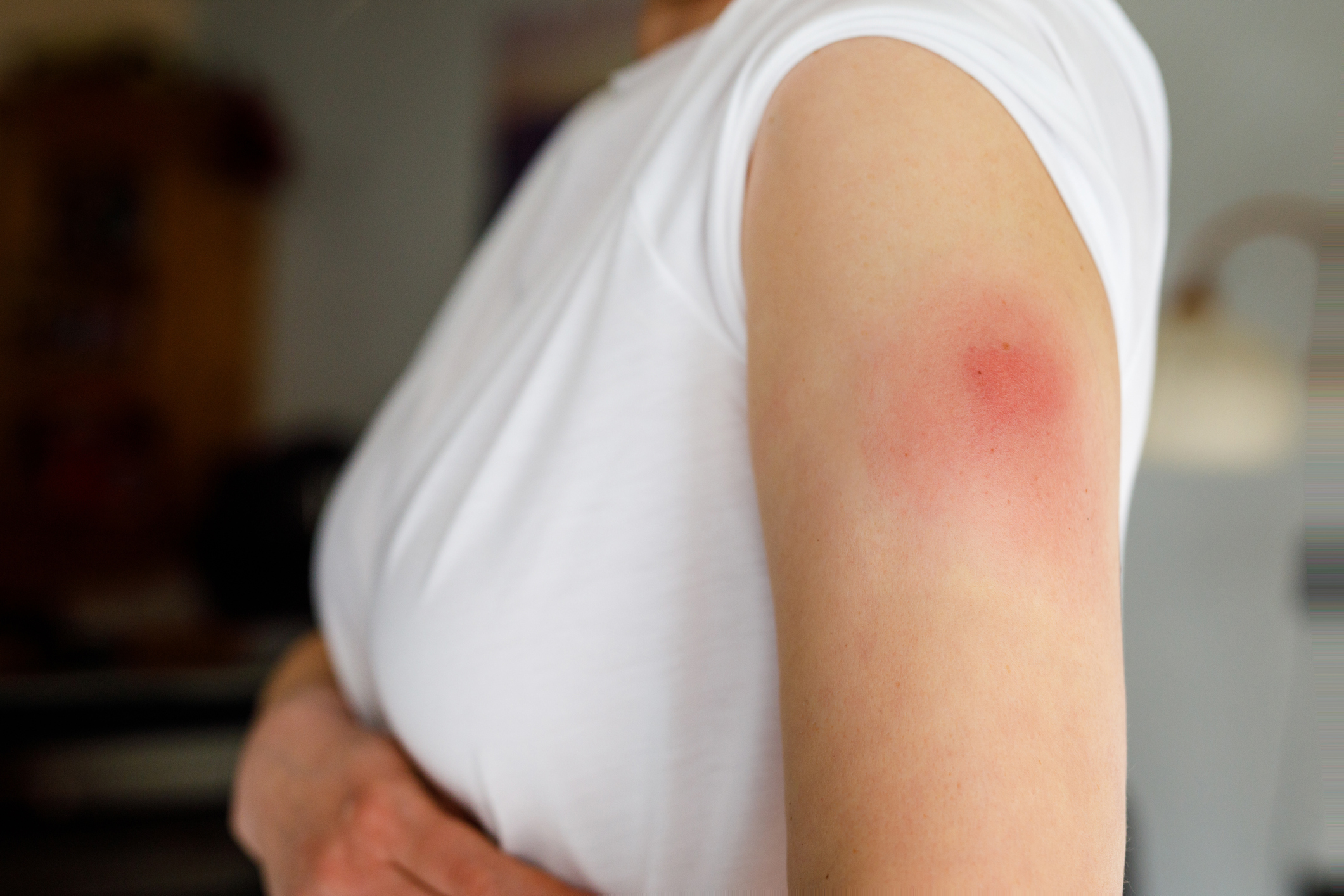
Key facts
- Staphylococcus (staph) bacteria are a common type of bacteria, which don’t usually cause any harm.
- There are many different types of staph infection. Your symptoms will depend on the type of infection that you’ve got.
- Most staph skin infections are treated with antibiotic medicine.
- Good hygiene can help prevent staph infections.
What is a staph infection?
Staphylococcus (staph) bacteria cause staph infections.
Staph bacteria are a common type of bacteria. They don’t usually cause any harm. They’re also known as ‘golden staph’.
There are different types of staph bacteria.
Staph bacteria are often found on your skin or in your nose. Even healthy people can have staph bacteria on their skin. It usually does not cause any problems.
Sometimes the bacteria can get inside your body. This can happen through a wound or injury. Staph bacteria that get inside the body can multiply. This causes an infection.
Some types of staph infection can be resistant to common antibiotics. This means the antibiotic doesn’t work to stop your infection.
What are the symptoms of staph infections?
The symptoms of staph infections will depend on the type of infection.
There are many different types of staph infection. Some people get a skin infection with boils. Other people might have blood poisoning. This is called ‘invasive’ infection.
Some staph infections can be serious.
Symptoms of invasive staph infection can be:
- a temperature above 38°C
- a fast heartbeat
- trouble breathing
- dizziness
- confusion or disorientation
- feeling sleepy
- reduced urination (not weeing as much as normal)
Staph skin infections
Symptoms of a staph skin infection include redness and swelling of the infected area. It can feel painful or hot. Sores are often filled with pus.
Staph infections on the skin can be:
- impetigo
- wound infection
- cellulitis
- staphylococcal scalded skin syndrome (SSSS)
There can be a lot of skin contact in crowded places like schools and childcare. This makes it easy for staph bacteria to be passed from one person to another.
You can learn more about this type of infection in healthdirect’s article on staph skin infection.
Staphylococcal food poisoning
Common food poisoning symptoms are: stomach cramps, diarrhoea and vomiting (throwing up). You can avoid food poisoning by keeping high standards of food hygiene throughout the cooking process.
Keep your food safe by:
- always cooking it properly
- keeping cooked foods separate to raw foods
- storing it at the right temperature
Invasive staph infections
Invasive staph infections are far less common than skin infections. However, they are usually worse. There are different types of invasive staph infection.
You can learn more by reading healthdirect’s article on invasive staph infections.
What causes staph infections?
Staphylococcus (staph) bacteria cause staph infections. They’re also known as ‘golden staph’. Staph can cause an infection in any part of your body.
When should I see my doctor?
See your doctor if:
- you have an infection — an area of red, hot, swollen, irritated or painful skin, or blisters filled with pus
- you have a fever
- the infection is getting worse or spreading
- you have a weakened immune system
- you keep getting staph infections
- you have signs of an invasive staph infection or sepsis
Who is at risk of a staph infection?
Anyone can develop a staph infection. Some people are more prone to staph infections than others. Those who are more likely to get staph infections are:
- children and infants — they can get an infection called ‘school sores’ (impetigo) and this can happen if they go to day care, preschool or school
- people with a weak immune system —for example someone who has cancer, HIV or takes medicine that slows down their immune system
- people who regularly have medical equipment entering their body — such as kidney dialysis, a catheter, a feeding tube or a breathing tube
- people who have been in hospital for a long time (these patients are in contact with healthcare workers and other sick people)
How are staph infections treated?
Most staph skin infections are treated with antibiotic medicine.
Simple infections can be treated at home. Serious infections need to be treated in hospital.
In hospital the patient will be given intravenous antibiotics. This means the antibiotic is given through a drip or tube straight into your body.
What is Methicillin-resistant Staphylococcus aureus (MRSA)?
The most common staph infection is caused by bacteria called Staph aureus. If these bacteria are resistant an antibiotic called methicillin they are called Methicillin-resistant Staphylococcus aureus (MRSA).
As the normal antibiotics used to treat MRSA don’t work, an MRSA infection is harder to treat.
Due to MRSA, doctors are now more cautious about prescribing antibiotics. You should only use antibiotics when you really need them. This can help to reduce the risk of bacteria becoming resistant.
Can staph infections be prevented?
Basic hygiene is the best way to avoid getting a staph skin infection. Always wash your hands well with soap and running water. Then dry them with a clean towel or disposable paper towel.
You should, wash your hands:
- after going to the bathroom
- after blowing your nose
- before handling and eating food
- after handling animals, including domestic pets
- before and after touching or cleaning an infected part of your body
Take extra care if you live with someone who has a staph skin infection. You can avoid catching the infection by:
- not sharing any personal items with them. This includes:
- toothbrushes
- towels
- clothes
- linen
- washing your hands as soon as you can if you touch the person
- making sure their bedding and towels are cleaned daily. Use hot water and bleach.
If you are at risk of getting an invasive staph infection, you should try to:
- have a healthy lifestyle
- eat a healthy diet
- get regular exercise
- not drink too much alcohol
- avoid smoking and illicit drugs
You can avoid food poisoning by:
- making sure that your work surfaces and cooking utensils are clean
- always washing your hands before making food
- not handling food if you are sick with vomiting or diarrhoea
- not making food for others if you have open sores and cuts
Complications of staph infections
Staph infections can sometimes cause serious infections like:
- septicaemia (blood poisoning)
- pneumonia


